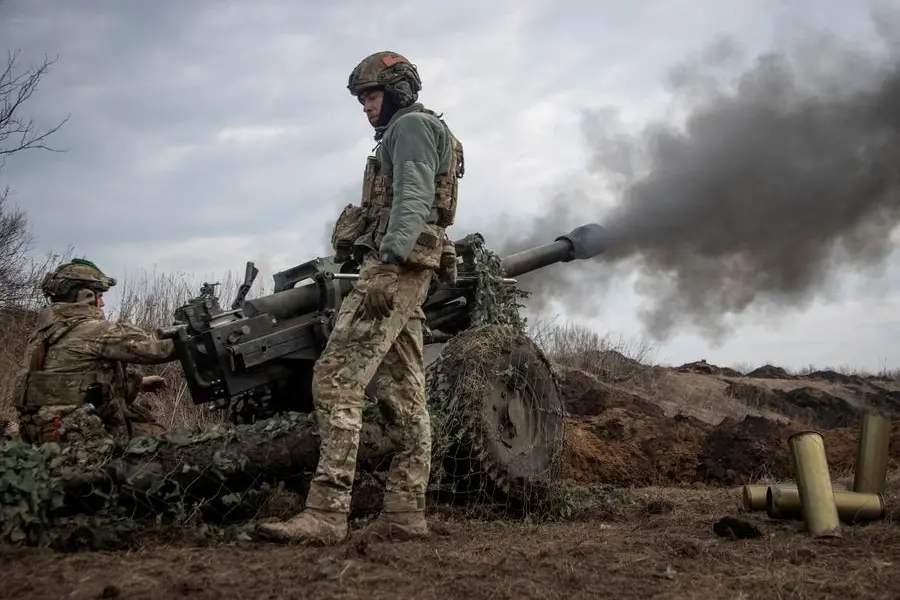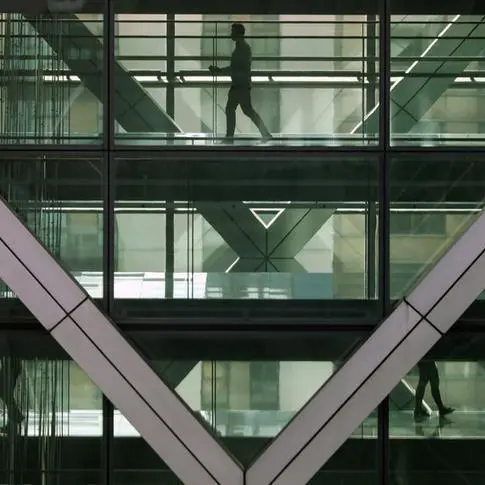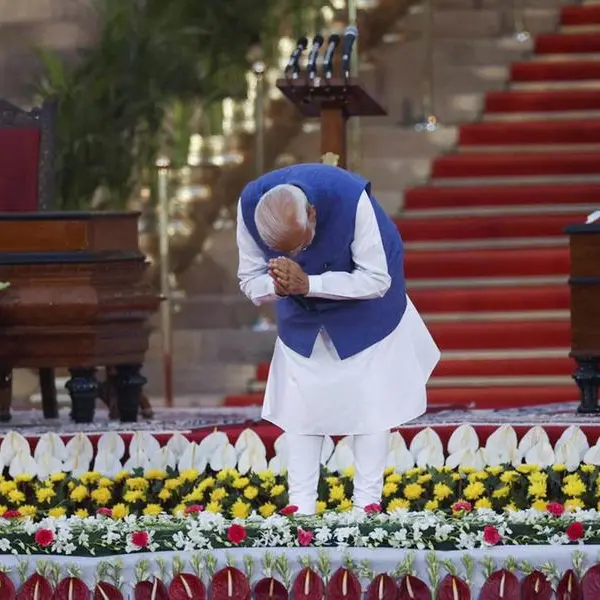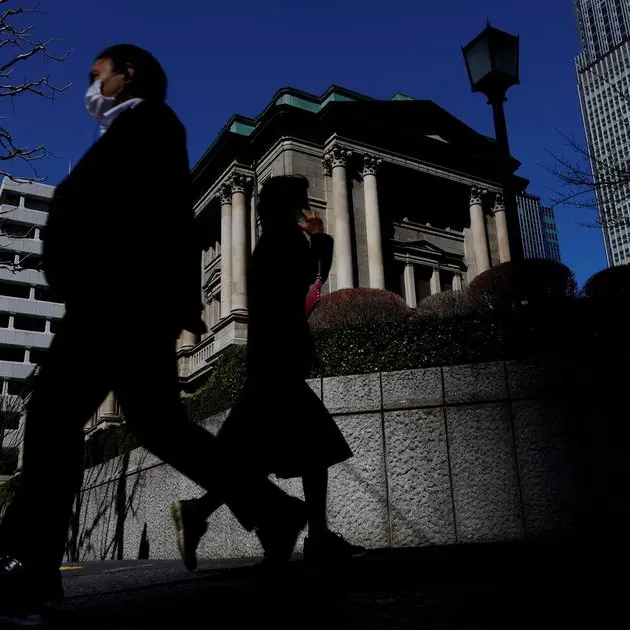PHOTO
From a small, non-descript house in a badly bombed village in eastern Ukraine, Andrii "Tuman", who goes by his call sign meaning "fog", commands his battalion around the clock to hold intensifying Russian attacks at bay.
What Ukrainian forces have long described in the city of Bakhmut is also playing out to the north in Luhansk region - more Russian troops, weapons and aggressive tactics that Moscow hopes will produce a badly needed breakthrough.
Medics reporting to Tuman described heavy casualties in recent weeks, further evidence that the grinding warfare along the front that runs across eastern and southern Ukraine is coming at a high cost to both sides.
The rumble of distant shelling is a constant backdrop as soldiers speed through the village on armoured personnel carriers, while at his base - its windows blacked out - Tuman calls out coordinates for artillery strikes.
"Since the beginning of February, they (the Russians) have conducted something like 40 to 50 attempted assaults," the 45-year-old told Reuters in between relaying messages over his radio.
"We have repelled them all," added the commander, who identifies himself as Ichkerian, using the historic name for Russia's southern region of Chechnya where he fought in two wars. He rejects Moscow's control over the territory.
Tuman, a stocky figure with a wispy beard, fears the pincer movement that Russian forces are attempting in Bakhmut to surround Ukrainian troops defending it could be repeated, on a larger scale, in his sector of the front.
He said the Russians had switched the direction of attack recently, apparently with the intention of taking the road to Lyman - a town under Ukrainian control that lies to the west of Kreminna, thus forming the top of a pincer.
At the bottom of the attempted encirclement appears to be Soledar, meaning an area far larger than Bakhmut would be vulnerable. This could allow Russia to accelerate west after it has been virtually stuck for months.
"This is the second main direction (after Bakhmut) which is very interesting to the enemy, because if they come to Lyman then beyond, there is Kramatorsk and Sloviansk," he said.
"It will pose a 'pincer' threat which is why they are trying to fight for this area so heavily - this is no less important than Bakhmut."
OFFENSIVES AND COUNTER-OFFENSIVES
Some analysts said that while this may be Moscow's intention, they doubted its ability to carry it out given the difficulty Russia has had in conquering the virtually abandoned and badly ruined city of Bakhmut.
"There is indeed an increase in activity and they (the Russians) are trying to move towards Lyman - they managed to advance 4 km in February," Ukrainian military analyst Oleksandr Musiyenko said.
"The enemy would need a lot of forces to take this line (Sloviansk-Kramatorsk-Kostiantynivka) and therefore I think it is unlikely, given the losses the Russian troops are already suffering," he added.
President Vladimir Putin has framed Moscow's year-long invasion of Ukraine as a defensive pushback against what he sees as a hostile West bent on expanding into territories historically ruled by Russia.
The West and Kyiv dismiss his justification for a war they say is a land grab that has killed tens of thousands of people, laid waste to towns and cities and forced millions to flee.
Tuman's 110th Battalion is active in territory seized by the Russians after Putin launched a full-scale invasion of Ukraine in February last year and retaken by Ukrainian forces in a counter-offensive last autumn.
Signs of the fighting, and subsequent artillery duels, are everywhere. Homes and shops have been smashed, burned out military vehicles litter the surrounding woods and cannons boom loudly as they fire at Russians positions to the northeast.
For all the carnage, the war has ground to a virtual halt.
Russia has made only incremental gains around Bakhmut, which it has been trying to capture for eight months, and further north.
Tuman said he believed that heavier attacks in February probably constituted Russia's offensive, which Western military experts had been expecting as early as the winter.
Oleksandr, the commander of a unit in Tuman's battalion that is fighting the Russians in frontline trenches, also saw an escalation last month.
"They are pushing hard. They are lobbing mortar bombs at us," the 50-year-old told Reuters on Tuesday, describing the Russians advancing in fire teams with another wave behind sent to replace them if they are killed.
"At night they always attack on foot and we sit, looking through our thermal goggles, and shooting them."
The battalion has gradually expanded its strength, adding drone teams and some heavy weaponry including tanks, and while morale remains high and Tuman a popular leader, commanders also speak of growing fatigue.
"To tell you the truth, we are really exhausted," said Serhii Pavlovych, 43, deputy commander in charge of psychological support. "That's the only serious problem so far. Motivation is very high."
As for Ukraine's attempt to take the initiative, Tuman thinks a counter-offensive could come soon. Warmer weather has reduced tracks to mud in many places, bogging down heavy vehicles.
"They (Ukrainian authorities) are preparing a lot of reserve battalions and they will be involved in the counter-offensive," said Tuman. "This is spring and the weather is not that favourable ... so I believe in April it's coming."
FORGED IN WAR
Tuman's adult life has been overshadowed by conflict. He said he took part in both wars in the 1990s between Russian troops and separatists after the breakup of the Soviet Union.
He retired from the Ukrainian armed forces in 2007, but re-joined in 2014 when Russian-backed separatists moved into eastern Ukraine. He was badly wounded in an explosion in 2020, but signed up to serve after the full-scale invasion began.
Tuman, who is a Muslim, lost one of his three wives in the hostilities near the capital Kyiv towards the beginning of the invasion. His only son, who was 21, also died around then fighting in the northern town of Sumy.
His motivation comes from exacting revenge on the Russians and supporting his battalion of several hundred soldiers. He declined to specify how many troops he commanded or allow the village where Reuters spent two days following him and his troops to be named.
In another room of his base, two men sat behind laptops and monitored live footage being sent from drones overlooking Russian positions. They use this to identify enemy threats and target them with artillery.
In the surrounding woods, on a dirt road towards the frontline some 8 km (5 miles) away, a two-man medical evacuation team waited for a soldier wounded in fighting to be brought to them by his comrades.
Mykhailo Anest, a 35-year-old medic, said the most intense fighting was in February, when as many as 20 soldiers from the battalion were wounded in a single day.
"There is a lot of artillery and mortar fire," he said.
Reuters saw five wounded soldiers brought from the front on Monday, two of them superficially. Anest stabilised a soldier with shrapnel wounds to his right leg in an ambulance van before taking him to a nearby clinic.
Tuman said he needed more artillery firepower, including ammunition, and multiple rocket launchers to sustain pressure on the Russians.
For now, artillery appears to hold the key to defending positions and pinning down the enemy for both sides.
"My guys have been fighting for months," he reflected. "They are dying and they are not seeing a single Russian, because they were all hit by artillery."
(Reporting by Mike Collett-White; additional reporting by Pavel Polityuk in Kyiv; Editing by Angus MacSwan)





















